 |  | 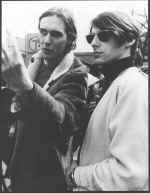 |
 |  | |
 |  |  |
 | 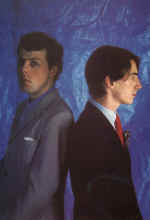 | 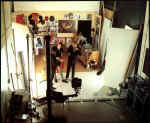 |
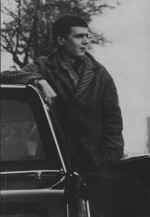 |  | 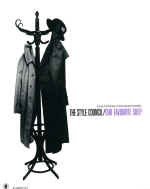 |
 |  |  |
Internationalists 1985
Rather than produce some simple scans, and people not be able to read the writing, I have split them up. First the text. To go straight to the pictures, press HERE To download a copy of the text, to read at your leisure, press HERE |
| OUR FAVOURITE SHOP The second long playing record from The Style Council, the follow-up to last year's 'Cafe Bleu'. Nothing to do with Harrods or Fortnums and Masons, 'Our Favourite Shop' is a mythical place where the Councillors have gathered together things past and present which have enriched their lives over the years. Paul: The original idea was a kind of parallel between a shop where all our favourite things are jumbled up and thrown in, but in a way which worked, the same way that our music has a lot of different styles but what comes out makes sense to us. People complained that 'Cafe Bleu' was a jumble of styles - that there were so many things going on it got confused. But it wasn't confusing to us - it just wasn't what people are used to, that's all. I think that 'Cafe Bleu' is good - not a great album, but the right thing for us to do at the time. It takes time to find your feet, and though there's still loads of styles on 'Our Favourite Shop' it's more coherent and more confident. We took more time over it too. I don't think we'd ever rehearsed songs before we recorded them, but we did this time. We didn't set out to make an overtly political album, we just chose the beat songs. As far as I'm concerned though, if a song actually says something then it's got to take precedence over something which just says 1 love you baby'. The lyrics are really vital to the record so I made sure the vocals were up in the mix because sometimes I think they've been down and lost a little bit. Paul: I write quite a lot. There's 14 tracks on the album and three B-sides on 'Walls . ..' which aren't on the LP. If you go out and buy a Wham! album with eight tracks, you've already heard five of them, so all you're left with is three new songs. I'd hardly call that prolific! It's pathetic. If I was a songwriter who only turned out eight songs a year I'd give it up and start bricklaying or something. MICE OR MEN? Mick: People who don't listen that hard assume that because something is light and Latin-sounding then all it is is just a pleasant tune. Paul: Pop music is very rarely subtle, people get conditioned into thinking that anger equals loud music or loud guitars. I used to think that, but I don't any more. I hope the songs on 'Our Favourite Shop' and everything they say will make people angry without us having to turn our instruments up. People get bombarded with pop music which is just one way or another. There's always a stereotype. It's either angry or it's slushy and wimpy. Mick: You can still get power and aggression across even though the guitar isn't going wah-wah-wah at full blast. STONES THROW "For liberty there is a cost/it's broken skull and leather cosh; From the boys in uniform. Now you know whose side you're on." Pretty dramatic stuff - pulling together Chile, Johannesburg. Poland and South Yorkshire in a powerful three minute song .... Paul: I suppose it is dramatic, but the point I wanted lo make is that it's also on your own doorstep. I'm not comparing the miners situation with that in Johannesburg but it still comes down to the fact that the miners felt their rights were being threatened and they were sticking up for them. Fundamentally it's the same thing, the same struggle. Mick: Some things in the songs are a bit larger than life because you have to get people's initial attention and make points noticeable. Most of the lyrics are pretty factual - based on things that have happened in the past year or so. OUR FAVOURITE SHOP The title track, and the only instrumental on the album. Mick: This started on the last lour in the soundchecks when I'd be doodling around with a Latin rhythm. Rather than call it 'The Talbot Samba' we thought we'd call it 'Our Favourite Shop'. I see it as the kind of theme music for the album - if we made a film of the LP it'd be up there at the front. INTERNATIONALISTS "Without the strength of us all together, the world as it stands with remain forever. Paul: It's all in the song really. It's very simple — almost borders on sloganeering, but it's difficult to put across in any other way. It sounds simple, but when people band together things do change - there's no point in trying to complicate that. WITH EVERYTHING TO LOSE (The first recorded work by The Style Council featuring lyrics written by drummer Steve White.) Steve: I only write when I've got something to say and I fell I did after I went to the House of Commons. It was for a press conference about the Youth Trade Union Rights Campaign, and a real eye-opener for me. I found out all these facts about the YTS and how many people have died and lost limbs on them. It really affected me, and the only way I could do something sitting at home was to write about it. I hadn't written anything for The Style Council before, so I was really nervous - I thought they'd take the piss, but they didn't . . . I must admit I was really proud of it. I love hearing all the stuff I've played drums on but that was something a bit different - I felt I'd made a real contribution. When you play drums you can be really expressive, but with 'Everything To Lose' it really showed exactly how I felt about the scandal of the Youth Training Schemes. STAND UP COMIC "Keep 'em laughing and don't stop/Or the truth might catch up and spoil the lot . . . " A gruff, gravelly-voiced Northern comedian (aka Lenny Henry) give some advice on how to succeed in the working mens clubs . . . Paul: We got to know Lenny when we did a TV show, and when I showed him the lyrics he really liked them. When I first wrote it I wasn't sure what it was going to be-I was hoping I could fit it into a song, but it soon became obvious that it would be impossible. It's great that Lenny did it—there's so many ironies there. As a black person he's obviously had all that racist stuff, and he's been through it as a comedian, having lo do all those horrible routines in crappy social clubs. DOWN IN THE SEINE Pretentious? Moi? A rolling, swirling breeze of a song, with breathy vocals from Paul, partly sung in French, and given an even more Gallic flavour by the addition of accordion. Must've been written on some Parisian boulevard, n'est ce pas? Paul: I wrote that in England over a year ago. It is supposed to capture an atmosphere a little bit though. It started out fairly tongue in cheek, but as it developed we got more serious about it because it was starting to sound really good. I still like that European influence in our stuff. It's only in there occasionally, and I think it's good. A lot of people still find it pretentious, but I think it's something we could work on more and develop. WALLS COME TUMBLING DOWN "You don't have to take this crap/You don't have to sit back and relax/You can actually try changing it." Paul: People shouldn't take it too literally. I wouldn't like "you don't need to take this crap" to be taken as our final statement on the album as it tends to oversimplify everything we've said before. There's a brilliant quote on the sleeve from Tony Bonn which says something like 'It's not enough lo write songs and poems about liberty, you have to dedicate your whole life to it'. "I know we've always been taught to rely/Upon those in authority/But you never know until you try/How things just might be/if we come together so strongly." BLOODSPORTS A gentle folksy track on the flip of 'Walls . . . ', 'Bloodsports' was a timely attack on the hypocrisy of country hunting folk who spend a morning in prayer and an afternoon chasing and watching an animal being ripped to death by their hounds. Writing royalties went to the Bristol Defence Fund for two hunt saboteurs jailed for anti-bloodsport activities. I don't know the two boys in nick, but I agree with what the saboteurs do. It's hard for them to raise money because they're labelled as extremists, even though support for them is really widespread. Animal rights demonstrations get people of all ages and status at them, from anarchist punks to old grannies. Further information from Hunt Saboteurs Assoc., PO Box 19, London SE20 9LR. POLAND For their 'Walls Come Tumbling Down' video, our intrepid Style Councillors went to Poland to film. Partly because they wanted to see what it was like there for themselves, and partly because they thought they might be able to play some gigs there. Their verdict? Paul: There's not actually much you can say about it without putting it down. I don't want to sound too negative, but it looked pretty much like I thought it would - drab and boring. It had that kind of bleak look that you get in Scandinavian countries - and all the buildings looked really functional. It's very openly corrupt there too with people trying lo buy dollars off you all the time 'cos that's the main black market currency. We filmed the video at a jazz club - there didn't seem to be any pop fans there. It could've been done anywhere really. People always hold up the Eastern Bloc as examples that socialism doesn't work, but it isn't socialism, so that argument's redundant. Socialism doesn't mean everyone should have nothing, it means everyone should have something. And any system that has to keep going by fear and intimidation can't be socialist. There's a thin line between that and fascism. POLITICS AND POP Paul: The Labour Party is the only viable alternative to the lories, but there are just so many things that are frustrating about them. There's a lot of mouthing off but there doesn't seem to be any kind of real physical support for young people. They're never gonna win them over with mere words. One minute they announce their youth drive to try and win over more votes, and the next Kinnock's condemning the school strikes. Mick: Kinnock doesn't want to get entrenched too much in case it conies back on him. He's got high ideals, but gets nervous when there's some action, and he's not the only one. Paul: I don't think there's many politicians I'd put my faith in - there's so many careerists among them. INTERNATIONAL YOUTH YEAR FOR BRITAIN Did you know that this was your year? Growing unemployment, insufficient training opportunities, sexism, racism and the threat of nuclear war, the United Nations decided all this meant that 1985 should be made International Youth Year. Paul Weller was approached to be joint President along with actress Julie Walters. The idea was to make young people aware that this was their year. A film to publicise IYY was made starring Madness, Strawberry Switchblade, Jerry Dammers, Rik Mayall, Martyn Ware, Robbie Coltrane and Lenny Henry, along with Style Council and Julie Walters, and people from youth groups round the country. The idea was for it to be shown on music programmes, but so far that hasn't really happened. "I'm still a bit unsure about my involvement, really," says Paul. "I think it's more of a media thing in a way -I'm a sort of figurehead. I spoke at the first national conference in Sheffield which was interesting. There's several different aims to it-it depends who you talk to. There are lots of hiking clubs and Brownie groups, which is fine, but there's also the people whose interest is more political - that's more the side I'd like to be involved in. I think the aim should be to create a circulation of information among young people through all these groups, then use it in a political way. There is a national lobby of Parliament in November, and more information is available from English IYY Committee, 57 Chariton Street, London NWI IHU. COUNCIL COLLECTIVE On December 14th 1984, members of The Style Council who had joined forces with Jimmy Ruffin, Junior Giscombe, Dizzy Heights, Leonardo Chignoli (Animal Nightlife), Vaughn Toulouse and Martyn Ware (Heaven 17) released a single called 'Soul Deep'. Calling themselves Council Collective, the aim was to raise money for the families of the striking miners. At the time the miners had been on strike ten months, violence on the picket lines was peaking and the message for union solidarity was not one the station of the nation wanted to broadcast. Despite lack of airplay though, the single got to no. 26 in the chart. Paul: We put it out as The Council Collective because there was equal involvement from everybody, and also as a way of putting the song first. We didn't want it lo matter who it was by, we wanted people lo listen to what it was saying. I think it's important to have records in the charts which show a more realistic side of life. There's all these bands making videos in exotic places and singing about what a great time they're having and how marvellous the world is. But everything isn't marvellous for everyone. Mick: I was disappointed by the lack of airplay it got but I wasn't surprised. I was really pleased with the way it turned out though. It was done very quickly but everyone contributed a lot. They didn't just come in and do their vocals -there was a good spirit. |
For your listening pleasure / the style council
|
|
Please Click On A Thumbnail, To See A Larger Version Of The Picture
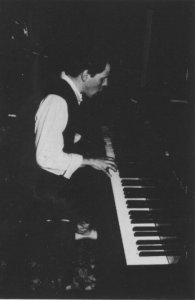 | 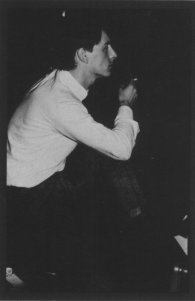 | 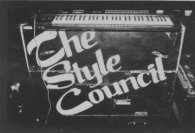 |
| These Pictures Were Already Rather Small, So They Are Not Thumbnails | ||